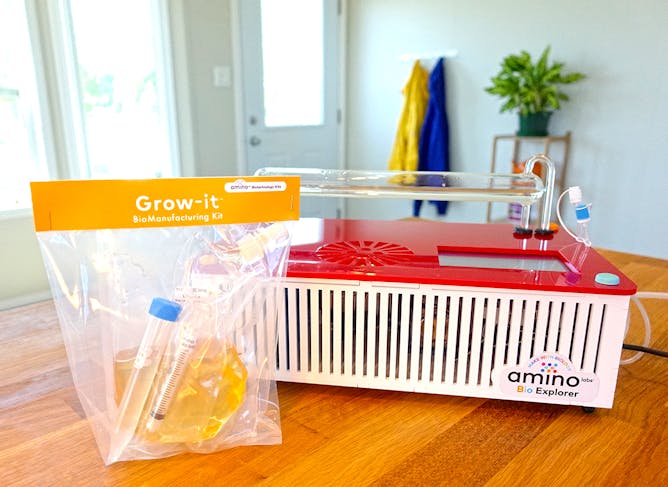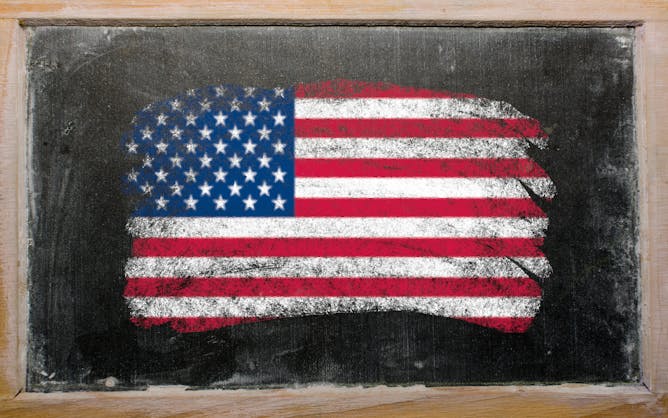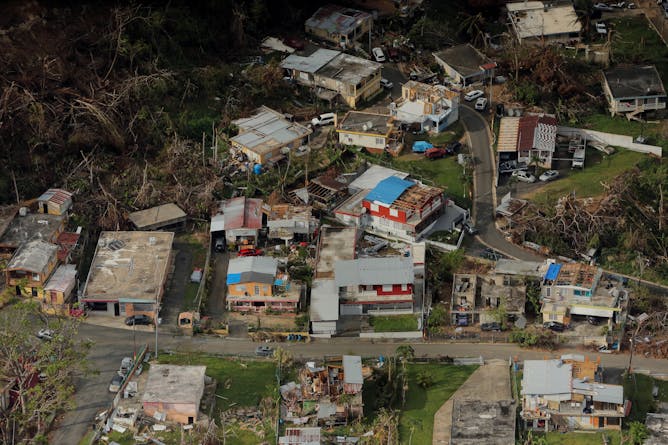Editor's note
|
|
Americans who use insulin to manage their diabetes can pay an awful lot for it. Colorado State University researchers Jenna Gallegos and Jean Peccoud focus on biosecurity – so were intrigued when they learned of DIY biohackers who are tinkering to find ways to homebrew insulin and other biologic drugs, patent- and regulation-free. Could this be a safe start to democratizing how pharmaceuticals are made, sold and regulated in the
U.S.?
As the controversy continues over the movement started by quarterback Colin Kaepernick to take a knee during the national anthem to protest police brutality, philosophy professor Randall Curren and education scholar Chuck Dorn recount how battles over patriotic rituals in America’s schools have played out over the past century.
It’s been nearly a year since Hurricane Maria hit Puerto Rico, a disaster that led to some 3,000 deaths. But even before the death toll was counted, experts should have known that it would be a catastrophe, writes American University’s Morten Wendelbo, who argues “the fatality count alone is woefully inadequate for understanding the depth of the disaster.”
|
Maggie Villiger
Science + Technology Editor
|

|
|
Top stories
|

Miniature biomanufacturing kits like this prototype could revolutionize the pharmaceutical industry.
Amino Labs
Jenna E. Gallegos, Colorado State University; Jean Peccoud, Colorado State University
Small-batch brewers are starting to tinker with biologic drugs to meet their own medical needs. A side effect of their success would be a disruption to how big pharma makes and distributes drugs.
|

Americans have long differed over whether patriotism should be pushed in their nation’s schools.
vepar5/www.shutterstock.com
Randall Curren, University of Rochester; Charles Dorn, Bowdoin College
As debates over protests during the national anthem continue to rage, two scholars examine how legal and moral battles over the merits of patriotism in public schools have been playing out for years.
|

Buildings damaged by Hurricane Maria are seen in Lares, Puerto Rico, October 2017.
REUTERS/Lucas Jackson
Morten Wendelbo, American University
Thousands died after Hurricane Maria, but it did not have to be that way. Early evidence should have led the government to a much stronger response.
|
|
|
Politics + Society
|
-
Aviva Rutkin, The Conversation
With such an enormous challenge, where would it make sense to start? We looked into our archives for stories on what it would take to eradicate homelessness in the US today.
-
Danielle Douez, The Conversation
A record number of immigrant children are being detained in the US. Here's what you need to know.
|
|
Environment + Energy
|
-
Theodore J. Kury, University of Florida
Lessons learned from Hurricane Andrew in 1992 and the Fukushima disaster in 2011 have changed how utilities brace for big storms.
-
Jamie T. Mullins, University of Massachusetts Amherst
US ozone pollution has fallen in recent decades, but exposure to low levels of ozone still has serious effects on human health and well-being.
|
|
|
|
Science + Technology
|
-
Saptarshi Das, Rochester Institute of Technology; Eric Williams, Rochester Institute of Technology; Gabrielle Gaustad, Rochester Institute of Technology
Questions about supplies of rare-earth elements, crucial in high-tech devices, pushed researchers to look to industrial waste for new sources of the key materials.
|
|
Economy + Business
|
-
Julia Brooks, Harvard University
If you would like to assist from afar, let the professionals procure goods and services.
-
Robert W. Klein, Georgia State University
As Hurricane Florence is expected to pound the Carolinas with significant flooding, an insurance expert explains how the program designed to help the millions affected recover.
|
|
From our international editions
|
-
Umut Korkut, Glasgow Caledonian University
The proudly illiberal leader is forging new alliances ahead of European elections next year.
-
Hugh Stephens, University of Calgary
Canadian dairy farmers were already well-heeled and well-protected from world market forces, but their cash grab over something called diafiltered milk has put the entire Canadian economy at risk.
-
David Baratoux, Institut de recherche pour le développement (IRD)
Senegal has made great strides in astronomy and planetary sciences in recent years.
|
|
Today’s chart
|
-

 |
Steven Pressman
Colorado State University
|
| |
| |
| |
|
|